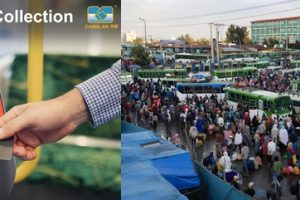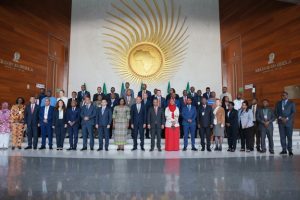
The southern part of the globe is rich in creativity, indigenous practices, homegrown innovations, deep-rooted knowledge, and best practices originating from the society’s way of life. However, despite this, the southern hemisphere remains dependent on technological developments from the northern world. As a result, the endogenous innovations, local creativity, and indigenous knowledge of the southern hemisphere are overshadowed by the technological advancements of the developed world.
This dependency on imported ideas and technologies from the northern hemisphere has hindered the socio-economic development of the southern hemisphere, keeping it lagging behind. This situation not only impacts economic growth but also threatens the rich traditions and practices of the global south. Recognizing the importance of promoting homegrown ideas, innovations, creativity, and knowledge, the Global South has recently focused on developing local innovations and indigenous ideas.
As part of these efforts, the Ethiopian Ministry of Innovation and Technology (MInT) and the Organization of Southern Cooperation (OSC) organized the first edition of the Endogenous Technologies Fair on the Global South (GreSFET). This two-day event took place at the Science Museum in Addis Ababa, featuring 41 startups and entrepreneurs from 14 countries across Africa, Asia, and Latin America.
Abel Hailegiorgis, founder and CEO of Bamboo Labs, a company striving to produce various products from bamboo trees, was among the participants of the GreSFET and displayed his own innovative products produced from bamboo. Approached by The Ethiopian Herald, Abel stated that his company started manufacturing innovative products necessary for transportation. Abel’s Bamboo Labs Company is manufacturing cycles, wheelchairs, and crutches from bamboo trees by developing his innovative skills and ideas.
Cycles, wheelchairs, and crutches are among the products of Bamboo Labs. “By using bamboo, we are producing locally designed bamboo cycles, wheelchairs, crutches, and other products,” Abel said. According to him, Ethiopia has a huge potential of bamboo resources, with about 1.4 million hectares of land covered by bamboo despite the limitation to use this resource for socio-economic development.
“By using this untapped resource potential, Bamboo Labs started manufacturing products for market consumption, but with limited capacity,” Abel reiterated. Due to financial limitations, the company was unable to produce for market consumption so far; however, as he found supporters, his startup company is working to manufacture more to make the products available for interested customers.
Bamboo Labs is working to start manufacturing these new and fascinating products to join the transport market shortly, according to the CEO. “The products are locally designed, locally produced, affordable, and durable products,” he stated, adding “Currently, we have found interested companies to work with us, and we are on the way to producing the products to reach more customers.”
Abel said that locally innovated technologies and social enterprises are crucial for economic growth and in creating sustainable solutions for existing challenges in society. According to him, endogenous technological innovations are essential in solving the real problems of society sustainably and creating more opportunities in promoting local innovations and creativity as they develop from the rich traditions, creativity, and indigenous knowledge of the society using societal resources.
Teshome Girma was also among the participants of the GreSFET from Ethiopia. He is the manager of Green Mobility Technology-Ethiopia, a new company coming up with three types of locally developed technological products. Electric scooters, electric bikes, and tricycle electric wheelchairs are the three innovative products of Green Mobility Technology Company, Teshome told The Ethiopian Herald.
The electric scooter, named AD-36V, is a scooter designed for urban mobility. While the electric bike, ET-72V model is a locally produced motorcycle designed to replace fuel motorcycles. According to him, once charged, the bikes can provide services for up to two days, and his company aims to produce electric cycles and motorcycles for urban mobility, aiming to replace fuel motors.
The third product of Green Mobility Technology is a tricycle electric wheelchair produced for handicapped or physically disabled people. The electric wheelchair, designed to resist difficult topography, has the capacity to travel up to 25 kilometers per hour, as he mentioned.
These products are produced on a prototype level, and Teshome’s company is in the process of producing the products for market consumption. The prototype products are fully tested and ready to provide services. “We presented our products at this fair to promote our products, in search of support, and to share experiences from other innovators. We have the idea and the knowledge to manufacture the products, the limitation is finance,” Teshome mentioned his company’s eagerness to manufacture the products for market consumption.
Like Abel and Teshome, 41 different startup technology companies gathered from 14 different countries from the Greater South presented their technological innovations driven from indigenous knowledge and creative tradition of their respective societies. These homegrown technological innovations from the Global South originate from the traditions, knowledge, resources, values, and skills of the society. In addition, these technologies focus on solving the existing problems within the societies and sustainable development.
During the opening ceremony of the GreSFET, OSC Under-Secretary-General for Technological Innovation and Digitalization Enhancement (TIDE), Shumete Gizaw (PhD) said that the Greater South is rich in incredible talents and creativity, adding the necessity of cultivating and empowering these talents.
“Empowering local innovators create avenues for technologies that address real-world challenges,” Shumet stated, adding GreSFET’s role in catalyzing change in this regard. Education and skill development, sustainable agriculture, financial inclusion and fintech, clean and affordable energy, sustainable mobility, and integral health were the six thematic areas of GreSFET, according to Shumet.
For his part, Minister of Innovation and Technology of Ethiopia, Belete Molla (PhD) stated that the Global South has a rich culture of innovations, creativity, indigenous knowledge, and problem-solving creative traditions. Hence, he underlined, cultivating the endogenous technological innovations and homegrown ideas in the Greater South would accelerate development endeavors of the Global South.
“Rooted in the realities of our people, endogenous technologies bridge tradition and modernity, offering a sustainable and inclusive blueprint for tomorrow,” Belete stated, calling local innovators to continue their innovations using the untapped resources of the region and searching the knowledge and creativity of their respective societies.
OSC Secretary-General, Manssour Bin Mussallam for his part stated that empowering and promoting local innovators and endogenous technologies accelerates socio-economic development and competitiveness of the Global South internationally. As he mentioned, empowering technological experts and creative minds in the region is crucial to tackle pressing regional issues and to exploit the untapped potential of endogenous technologies in shaping sustainable development.
This generation of the Global South is striving for the revival and development of homegrown technologies and innovations, struggling with financial and other challenges to realize their innovations. These homegrown and endogenous ideas and technological products need support to realize the products to solve local problems and to compete at the international level.
As the youth generation of the Global South is striving to create, innovate, and invent new products using local resources and indigenous knowledge, empowering these endogenous technology startup companies and local innovators is crucial to realize sustainable development and prosperity in the Greater South.
BY DARGIE KAHSAY
THE ETHIOPIAN HERALD FRIDAY 6 DECEMBER 2024





